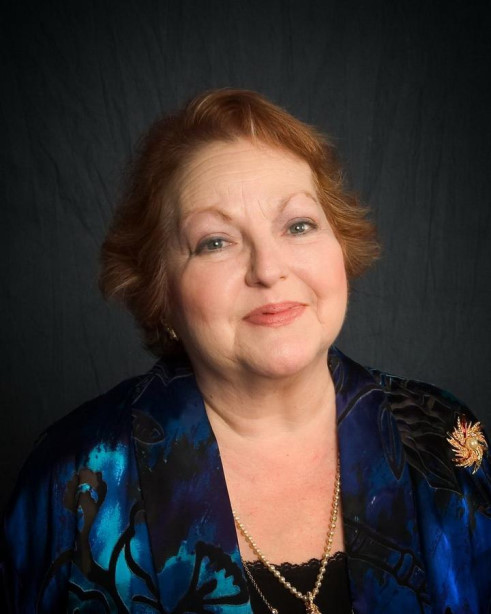|
Demos: How to Spend Your
Time And Money Wisely …
By Bettye Zoller
In fact, never contact voice-over talent agents until you have a “killer” voice-over demo in hand!
First impressions are lasting ones. Your competition is looking fantastic. Are you?
But how do you get a winning demo produced? And how much time and money should you budget for it? Good questions … and here are tips for getting the best results.
WHOM TO HIRE
First, never consider producing your demo by yourself. Everyone needs a producer, no matter how accomplished the performer. You do not hear yourself as others do - with honesty, separation, and brutal criticism when needed.
To hire a producer, start by researching voice-over credentials.
For instance, a recording engineer may have “heard” and “recorded” many voice-overs but lack the coaching skills to bring out the best in you. Thus, while an engineer will seek demo production jobs in order to “book the studio,” he or she might not be the best producer for your project.
Neither is a “voice coach” or “drama coach” your best choice. While this type of coach may expertly help film, TV or stage actors, voice-overs have little in common with that type of work.
A career in radio or TV does not qualify a person to be a voice-over expert, either! On-air radio/TV personalities, anchors and weather persons often have a difficult time learning how to make the switch to the voice-over style.
So to produce your demo, choose a coach or professional who is highly credentialed and experienced in voice-overs and audio production.
WHAT TO RECORD
Before you begin the recording session, pay the producer for an extra hour or so of consultation. Never start recording immediately, unprepared. If the recording studio operates that way, don’t hire it for your demo.
Part of this consultation is a discussion about the number of tracks, and types of tracks, to record.
For instance, if you want to show a variety of talents, you could record samples of work in several voice-over categories – each on a separate track. Such as:
A: commercials
B: non-broadcast and narration
C: cartoon voices
D: audiobooks, and so on
A specialty may lend itself to yet an additional track, such as “car dealer spots” or “horse breeder narrations.” I recently recorded a demo for a talent who chose the horse-breeding topic since she believes she can win many voice-over jobs in this area because she breeds horses herself.
FEATURE YOUR BEST
Your demo should represent the voice-over performance techniques you do best. Seriously evaluate your skills and talents. For instance, do you perform best with:
Seek your producer’s guidance. As a voice-over pro, the producer will help choose only your finest voices!
Also demonstrate a broad range of emotions and attitudes in your demo. Variety is the key. For instance, if you record a “very sad” excerpt, probably don’t do a second "sad" spot.
Your prospects will only need to hear a line or two of each spot to determine your voice attitude or characterization. Short excerpts are the key, carefully chosen.
COMPETE WITH THE PROS
In major markets like LA and New York, all cuts on your demo must be able to stand on their own when played side-by-side with demos of the top pros.
If your demo can’t pass this “theoretical test,” redo that demo fast!
WORD TO THE WISE: When asking others to critique your demo, consider their industry experience and credentials. How much do they really know? What’s their authority? The opinions of unqualified people can confuse you.
And be cautious about asking producers to critique it! They may just want to lure you as a new client.
Two more tips:
HOW LONG IS DEMO?Produce demos of two lengths:
Why? Some producers and agents want both edits, some prefer only one of these lengths. That’s a personal choice.
But almost all agents in today’s marketplace will demand a “shortie edit.” This will be the one posted on web sites and used on your agent’s agency demo, too.
The “full length” demo will be the version you mail and hand out to everyone.
Don’t subscribe to the theory that only a short edit demo is needed. That’s incorrect, and a common misperception. Besides, a new talent should be able to show more variety and range, which demands a longer demo length.
For a highly experienced performer, a short demo alone might be sufficient.
Even so, be careful. Some producers today are “selling” the short edit alone because it costs the talent as much money as would a longer demo - yet takes much less studio time for the producer to complete. Sad, but true.
I prefer this format: A long demo track (about two and one-half minutes), plus two edits of that long track: 90- and 60-seconds each. This way, the performer has it all.
LOOK LIKE A PRO
Your CD label should appear professional. You may be able to create it yourself, but be sure it looks terrific.
Do you need more than a label? It’s a matter of personal choice.
A jewel case and CD insert (cover card) are preferred by some, while top talent and some agents consider that extra packaging to be unnecessary. After all – it’s what’s on the demo that counts, not the jewel case.
Ask if the recording studio retains a complete back-up copy of your master, or if they'll give you the master for safekeeping.
And keep in mind that the least expensive demo production fee may not be the best fee. Check credentials and decide. “Shopping price” is often dangerous and can result in inferior products. By the same token, don’t be swayed by “expensive.” That may be a sham!
ELUSIVE PERFECTION
Finally, realize that no demo is perfect - not even yours! In fact, it is commonplace to soon hear things on your demo that could be improved. Your demo shows your voice-over skills at a particular point-in-time. And that’s the best anyone can expect.
So if you’re a beginner, you have to “start somewhere,” right? Be patient! And update that demo as your career advances.
Bettye Zoller is owner of VoicesVoices Educational Events, and the VoicesVoices Recording Studio, based in Dallas. With 35 years of experience as a voice talent, coach, producer, audio engineer and consultant, she offers voice-over workshops and consultations nation-wide. A specialty is audiobooks, as a Simon and Shuster audio author and narrator. Side note: Bettye began acting at age 5 as a contract player and attended school on Hollywood's famed MGM movie lot! Email: btzol@aol.com
Web: www.voicesvoices.com
|
Get your bi-weekly dose here ... all things VO!
With Sean Daeley and Paul Stefano - check it out!
Inspiring interviews help your VO career
For essential voice-over business strategies
As of the NEW website launch, 03/22/2012

 A demo is your all-important “calling card” and marketing tool to the voice-over world. Quite simply, it demonstrates your talent and the potential of meeting your prospects’ needs.
A demo is your all-important “calling card” and marketing tool to the voice-over world. Quite simply, it demonstrates your talent and the potential of meeting your prospects’ needs.
.png)







Kent